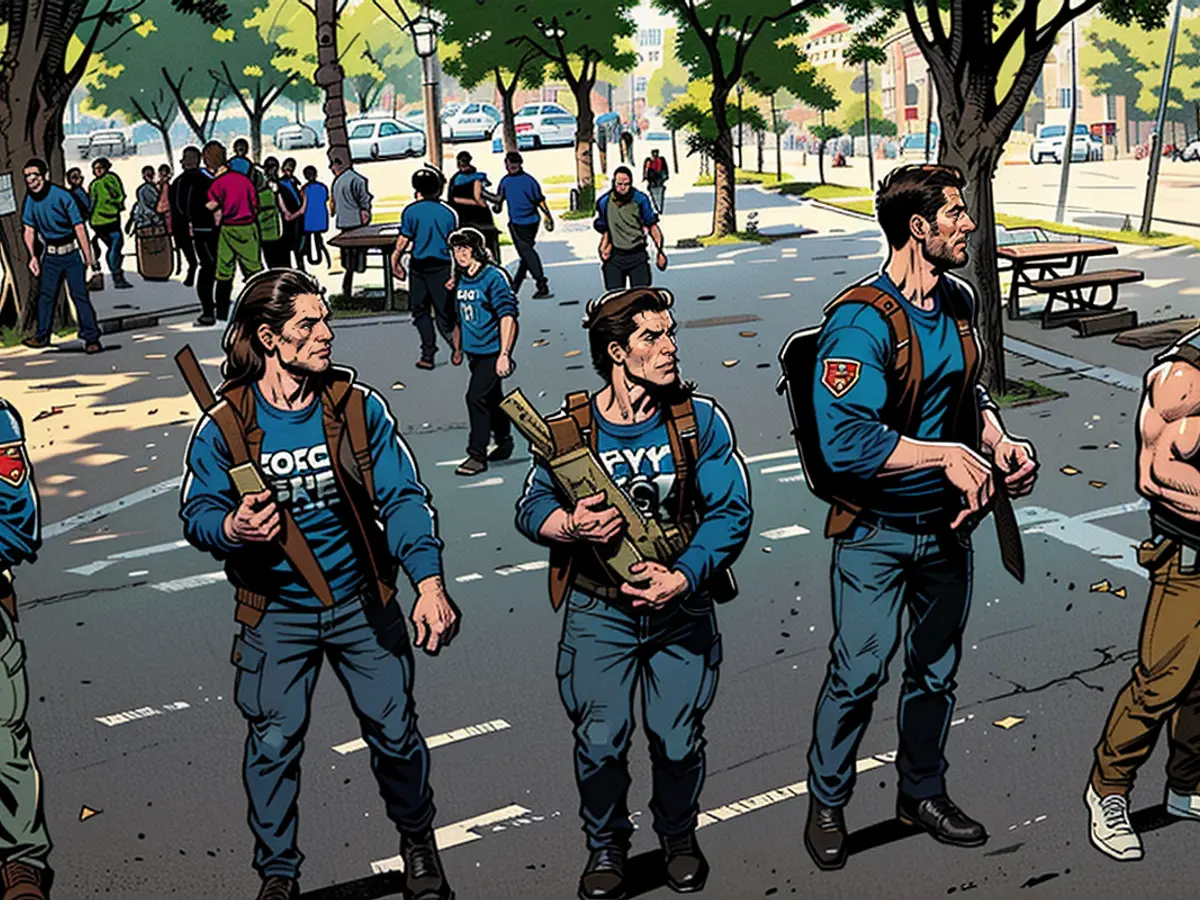Iran should be indifferent to the threat of war
An Iranian attack on Israel is reportedly imminent. While diplomats are working to de-escalate the situation, the two hostile countries are exchanging threats. Tehran is apparently willing to risk a major war, according to a report.
Israel and Iran's recent threats have fueled fears that a larger war could soon erupt in the Middle East, with consequences far beyond the region. The G7 nations have warned of the need to de-escalate, but the positions between the hostile leaderships in Tehran and Jerusalem appear entrenched.
Amidst an announced Iranian retaliation, Israeli Prime Minister Benjamin Netanyahu consulted with his military and intelligence chiefs. So far, there is "no clear picture" of the expected attacks, according to Israeli TV channel Channel 12. Other reports suggest Iran could strike as early as Monday.
The most dangerous crisis in the Middle East in decades was triggered by deadly attacks on two high-ranking targets of Israel's security apparatus last week. In the early hours of Wednesday, an explosion in a guesthouse of the Iranian government in Tehran killed the Hamas' external chief, Ismail Haniyeh. Hours earlier, an airstrike killed senior Hezbollah commander Fuad Shukr in Beirut. Israel claimed responsibility for the attack on Shukr, but there have been no official statements from Jerusalem regarding the attack on Haniyeh. Iran and its allied Hamas blame Israel for both incidents.
How are Iran's allies behaving?
Tehran's leadership and the Shiite militia Hezbollah, which it supports, have threatened Israel with massive retaliation for the attacks. Netanyahu's government has warned of severe consequences if this happens, fearing a regional conflagration if Iran's allied militias in the region also join in, including Hezbollah in Lebanon, Hamas in Gaza, Houthi in Yemen, and militias in Iraq and Syria.
According to a newspaper report, Arab diplomats visited Tehran and advocated for a measured response to the assassinations. However, Iran's leadership reportedly told the envoys that it doesn't care if the planned retaliation triggers a war, the Wall Street Journal reported, citing people familiar with the contents of the discussions.
Iranian President Massoud Peseschkian told Jordanian Foreign Minister Ayman al-Safadi in connection with Haniyeh's killing: "This cowardly act was a violation of all international laws and a big mistake by the Zionists (Israel), which will not go unanswered." His government wants peace and stability in the region, but the precondition for that is "an end to Israeli crimes, especially in Gaza," Peseschkian's office quoted him as saying.
G7 group calls for restraint
In a joint video conference, G7 foreign ministers urged all parties involved to exercise maximum restraint to prevent further escalation. In the current situation, dialogue and restraint are needed, said Italy's Foreign Minister Antonio Tajani, whose country currently holds the G7 presidency and organized the hastily convened conference, which also includes Germany.
Unclear is when the threatened retaliation could occur. In statements from Tehran and Hezbollah, they have repeatedly mentioned "the next few days". The news portal "Axios" reported, citing assessments from three American and Israeli government officials, that Iran could already strike as early as Monday. U.S. Secretary of State Antony Blinken reportedly told his G7 counterparts about this timeline, suggesting a window of 24 to 48 hours.
U.S. President Joe Biden will hold a meeting on Monday with his security advisors regarding the situation in the Middle East, with Vice President Kamala Harris also in attendance. Before this, Biden will speak with Jordan's King Abdullah II. Israel can likely count on the support of the U.S. and possibly other allies in defending against Iranian rockets, cruise missiles, and drones, as well as those of its proxy groups.
U.S. Assures "Ironclad Support"
U.S. Secretary of Defense Lloyd Austin spoke with his Israeli counterpart Joav Galant on Sunday, assuring him of "ironclad support" for Israel's self-defense, according to a Pentagon statement. They also discussed troop movements as a security measure. Austin advocated for a ceasefire in the Gaza conflict and an agreement for the release of hostages remaining in the Gaza Strip, according to reports from Washington.
On Sunday evening, Israeli military spokesperson Daniel Hagari advised Israeli civilians to remain vigilant. "The defense is not foolproof," he emphasized. The situation remains unchanged, but if necessary, people should quickly seek shelter and follow all instructions. Overnight into Monday, the Israeli military reported a nighttime attack from Lebanon involving several suspicious aerial objects. However, it did not appear to be a large-scale attack. The air defense was deployed, and one of the objects was shot down near the Kibbutz Ayelet Hashahar, injuring two soldiers. In other northern Israeli regions, air raid sirens were false alarms, a common occurrence in recent days. Prime Minister Netanyahu maintained his tough rhetoric on Sunday evening. "Iran and its clients are trying to encircle us with a ring of terrorism," he said at a memorial event for right-wing Zionist leader Zeev Jabotinsky (1880-1940). "We are ready to confront them on any front - near or far. Anyone who tries to harm us will pay a heavy price."
The international community, specifically the G7 nations, are urging both Israel and Iran to exercise restraint and de-escalate the situation, expressing concerns about the potential consequences of a larger war. Despite these appeals, tension between the United States of America and Iran remains high, with Iran reportedly disregarding the possibility of triggering a war with its planned retaliation.








